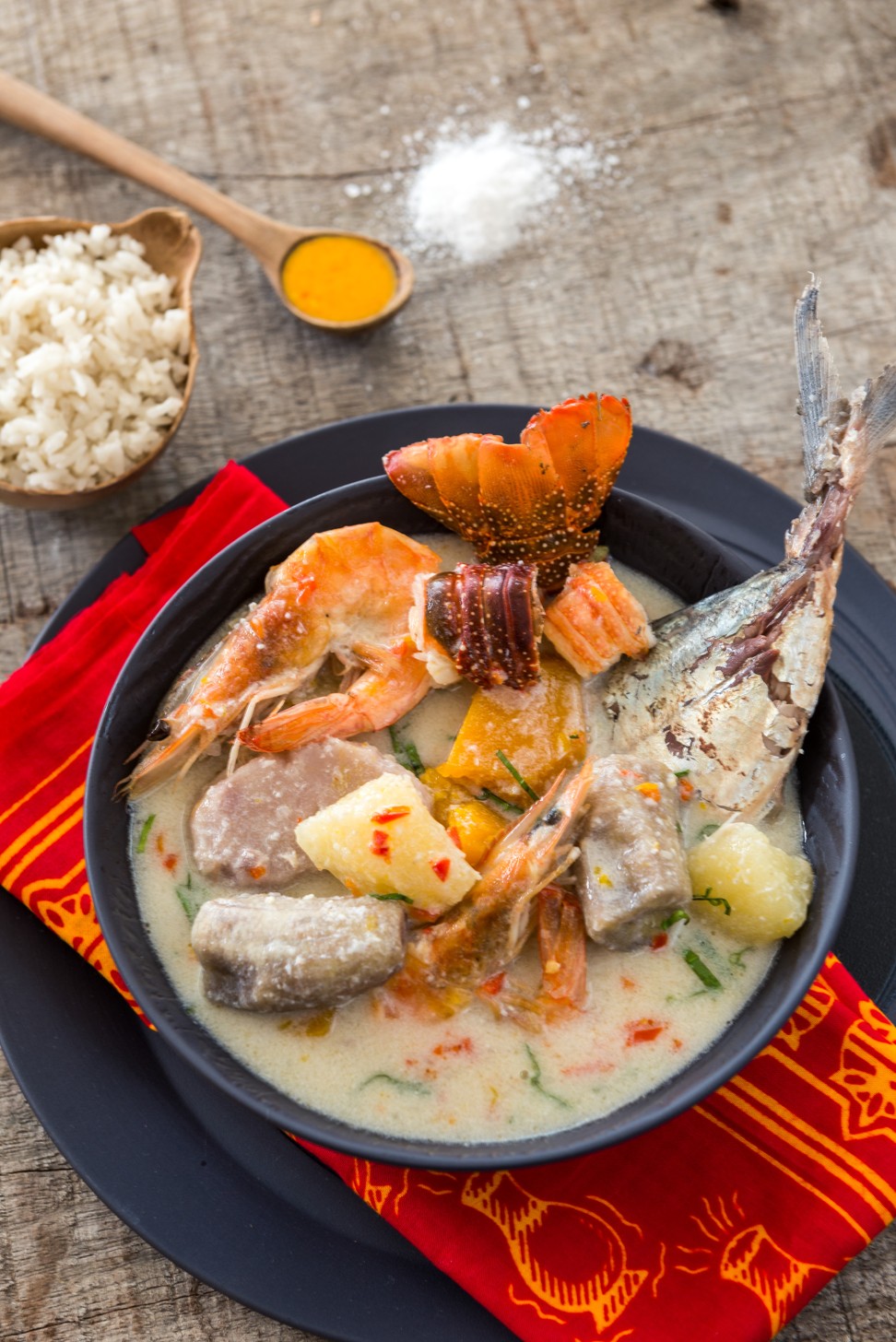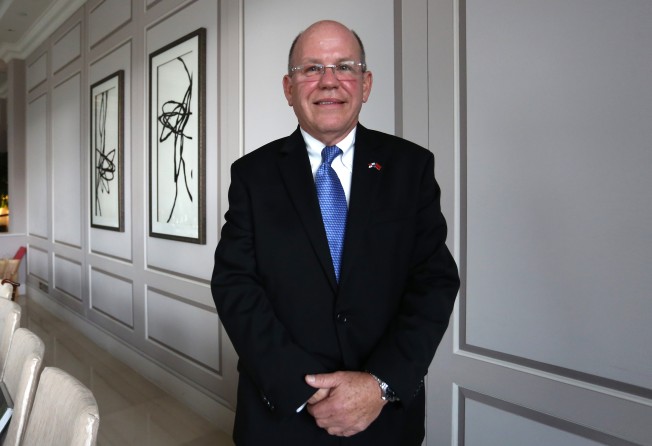
President Xi Jinping and First Lady Peng Liyuan’s ‘plates came back empty’: chef on cooking for China’s power couple
- Panamanian Charlie Collins is on a mission to introduce his country’s cuisine to the world
- Panama’s food features influences from Spain, France, the Caribbean and even China

How would you describe Panamanian cuisine? “Panama is a melting pot, so our cuisine has had a lot of influences, going back 500 years, to the arrival of the Spanish conquistadors. When the French tried to build a canal at the end of the 19th century, they brought in all of the sauces and reductions that are commonly served now in Panama.
“The Chinese influence goes back to 1855, when the first railroad that went from the Pacific to the Atlantic was built – [Chinese labourers] brought rice and noodles, and rice is very important in our diet now. But my favourite cuisine was brought in by the Afro-Antilleans from the Caribbean, who were slaves. That cuisine is very spicy, full of flavour and what marks Panamanian cuisine, with its coconut rice and curries.”
What is your favourite Panamanian dish? “Rice with cured pigtail, salted codfish and dried shrimp. It’s cooked on the stovetop in one pot, like a paella. We have the Chinese influence in there with the dried shrimp. It’s made with curry, cilantro and green onions. It’s a little sweet and a little savoury, and very, very tasty.”
What does “new Panamanian cuisine”, a term you coined, mean? “Last year, I published my book T’ACH Authentic Panamanian Cuisine, which is a compendium of the 130 most popular recipes dating back 500 years. I recorded the history and story behind every recipe. My upcoming book, T’ACH II Contemporary Panamanian Cuisine, is where I take those recipes and reinterpret them into a modern version.

“People are now practising new Panamanian cuisine around the country, especially in Panama City, with diverse and fine eating establishments. Contemporary cuisine is not as plentiful as what you saw in the past, the portions are smaller, and it’s prepared and served in such a way that it can easily be a tasting menu or a full meal with an appetiser, main course and dessert.
For example, there’s a dish called pickled pig’s feet. Its roots come from the slave years. The owners of the plantations would slaughter a pig and the slaves would get the cheaper cuts, like the feet. The original version is like a salad. I created a version with cucumber, vinaigrette and lime juice – almost like a ceviche.”
How did you go about researching a book that covers 500 years of culinary history? “My family owned a small hotel [called Panamonte] in Boquete, in the countryside, where coffee is cultivated. [Collins runs the hotel now.] We had staff from all over Panama, including Afro-Antilleans and Chinese. As a kid, I would gather with them in the kitchen and listen to their stories of food and learn how to cook.
“When working on the book, I started investigating, to corroborate whether what I had learned was true. We have 10 provinces in Panama and I went to them all, knocking on doors of homes, of mostly elderly people. I cooked with them and interviewed them. Everything was recorded and then edited into the book.”
You have cooked for five Panamanian presidents and their guests, including China’s Xi Jinping and the United States’ George W. Bush. How did you land that job? “Thirty years ago, in the main hotels in Panama, the chefs were all from outside. They were Swiss, German, French and American. I knew from the beginning that I wanted to become a chef. When I graduated high school, I said that I would study to be a chef, and everybody looked at me and said, ‘What!’ I was one of the first Panamanians to become a chef, and so I became well known.
“I have worked for five presidents in the past 25 years. I guess they feel comfortable with me. I’m discreet, and when you cook for a president you have to know what you are doing, you have to be a well-educated and well-rounded person, and you have to know how to serve a table properly. That’s how I was raised – having the hotel helped in my professional formation and education. But also, I cook with passion and a lot of love.”
How do you plan a diplomatic dinner? “When a dignitary or a president is visiting the country, we start receiving information way ahead of time – how many people will have dinner at the presidential palace and dietary restrictions, if any. Then I start working on the menu. I always serve Panamanian cuisine and never anything that is readily available in their home country.”
I would like to come back and do seminars or classes so that people here can learn about our culture and food. It is important for our country that our cuisine be known and experienced
So what did you serve President Xi and First Lady Peng Liyuan? “I’m not allowed to give details of the menu. However, it was a five-course lunch and it took about one hour and 45 minutes. It was traditional food, with several small but important touches of Oriental cuisine because that was requested. I prepared dishes from our indigenous cuisine, which was disappearing and is coming back. The president and the first lady’s plates came back empty.”
You write in the introduction to your latest book that you hope to spread Panamanian cuisine to Asia. How do you plan to achieve that? “Last year, Panama established diplomatic relations with China. We have many ingredients in common with China, so preparing Panamanian dishes should not be a problem for food enthusiasts and professional chefs from China.
It’s hard to say if people from Beijing or Hong Kong are going to go to Panama to study our cuisine but I would like to come back and do seminars or classes so that people here can learn about our culture and food. It is important for our country that our cuisine be known and experienced.”
Charlie Collins was in Hong Kong for a series of lectures on Panamanian cuisine.